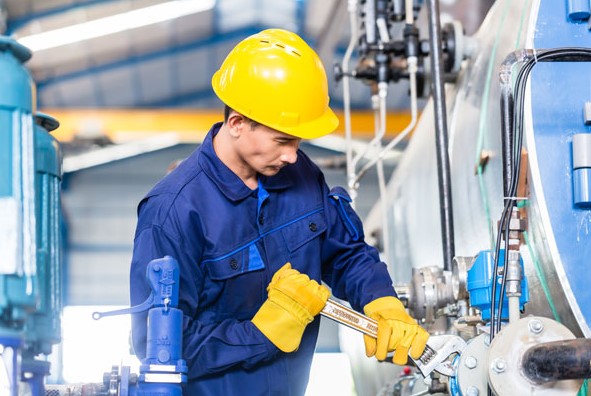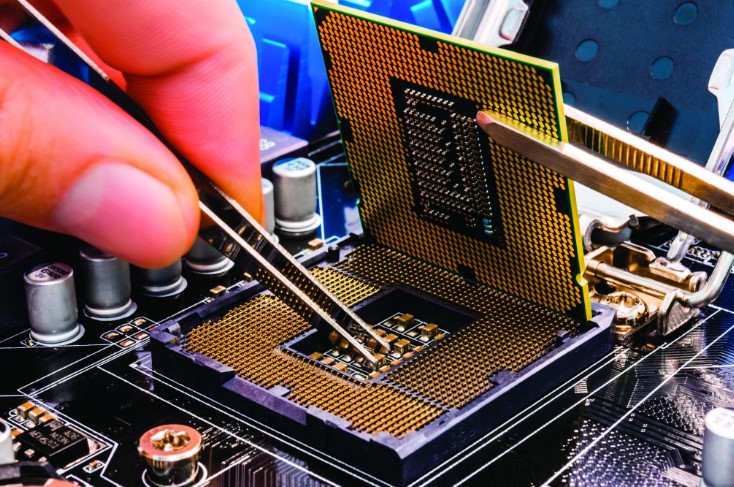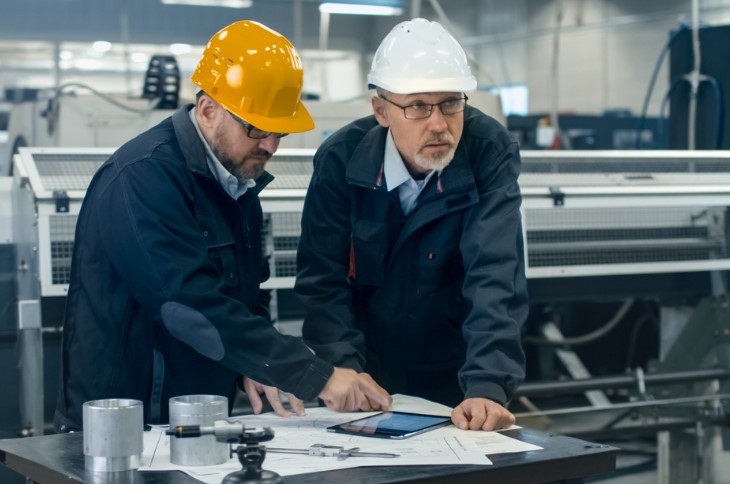
Maintenance Engineering: Ensuring Smooth Operations and Sustainable Performance
Maintenance engineering is a crucial field that plays a vital role in the effective functioning of various industries. It focuses on the implementation of strategies and techniques to ensure the reliability, availability, and performance of equipment, machinery, and systems. In this article, we will explore the significance of maintenance engineering, its various types, techniques employed, the role of maintenance engineers, challenges faced, future trends, and more.
1. Introduction
In today’s fast-paced industrial landscape, minimizing downtime and maximizing productivity are key priorities for businesses. This is where maintenance engineering comes into the picture. Maintenance engineering involves the application of engineering principles to enhance the efficiency and longevity of assets, while also minimizing costs and risks associated with equipment failures.
2. What is Maintenance Engineering?
Maintenance engineering refers to the discipline of planning, designing, and managing maintenance activities to ensure optimal performance and reliability of equipment and systems. It encompasses a wide range of tasks, including routine inspections, repairs, equipment replacements, and performance evaluations. The primary goal of maintenance engineering is to prevent failures and breakdowns, thereby maximizing uptime and minimizing disruptions to operations.
3. Importance of Maintenance Engineering
3.1 Increased Equipment Reliability
One of the core benefits of maintenance engineering is the increased reliability of equipment. By implementing regular maintenance procedures, potential issues can be identified and resolved before they escalate into major problems. This proactive approach significantly reduces the likelihood of unexpected breakdowns, ensuring smooth operations and minimizing production losses.
3.2 Cost Reduction
Effective maintenance engineering strategies can lead to substantial cost savings for businesses. By adopting preventive maintenance techniques, which involve scheduled inspections and maintenance activities, potential failures can be detected early on. This helps avoid expensive repairs or replacements and minimizes the overall maintenance expenditure in the long run.
3.3 Enhanced Safety
Maintenance engineering also plays a crucial role in ensuring the safety of personnel and the integrity of assets. Regular inspections and adherence to safety standards help identify and mitigate potential hazards, reducing the risk of accidents and injuries in the workplace. By prioritizing safety, maintenance engineers contribute to creating a secure working environment for all.
4. Types of Maintenance Engineering
Maintenance engineering can be classified into various types based on the nature and purpose of maintenance activities. Some common types include:
4.1 Preventive Maintenance
Preventive maintenance involves performing routine inspections, servicing, and repairs at predetermined intervals to prevent equipment failures. This proactive approach helps extend equipment life, reduce unexpected breakdowns, and optimize performance.
4.2 Corrective Maintenance
Corrective maintenance, also known as breakdown maintenance, focuses on repairing equipment after a failure or breakdown has occurred. While not as cost-effective as preventive maintenance, it is essential for resolving immediate issues and restoring operations swiftly.
4.3 Predictive Maintenance
Predictive maintenance relies on advanced technologies and data analysis to predict equipment failures. By monitoring key parameters, such as temperature, vibration, and lubrication, maintenance engineers can identify potential issues and schedule maintenance activities accordingly, minimizing downtime.
4.4 Condition-Based Maintenance
Condition-based maintenance involves monitoring the condition of equipment in real-time to determine the optimal timing for maintenance interventions. This approach considers factors such as usage patterns, performance trends, and environmental conditions to optimize maintenance schedules and minimize disruptions.
5. Maintenance Engineering Techniques
Maintenance engineering employs several techniques to ensure effective asset management. Some commonly used techniques include:
5.1 Reliability Centered Maintenance
Reliability Centered Maintenance (RCM) focuses on identifying critical assets, understanding their failure modes, and developing appropriate maintenance strategies. By prioritizing resources and efforts on high-impact areas, RCM maximizes the reliability and performance of assets.
5.2 Total Productive Maintenance
Total Productive Maintenance (TPM) aims to involve all employees in the maintenance process. It emphasizes a holistic approach to equipment management, focusing on proactive maintenance, operator involvement, and continuous improvement. TPM fosters a sense of ownership among employees and promotes a culture of efficiency and quality.
5.3 Root Cause Analysis
Root Cause Analysis (RCA) is a problem-solving technique used to identify the underlying causes of failures or issues. By analyzing the root causes, maintenance engineers can implement targeted solutions that address the source of the problem, reducing the likelihood of recurrence.
5.4 Failure Modes and Effects Analysis
Failure Modes and Effects Analysis (FMEA) is a systematic approach used to identify potential failure modes and their impact on equipment performance. By analyzing failure modes, their causes, and effects, maintenance engineers can prioritize maintenance activities and allocate resources efficiently.
6. Role of Maintenance Engineers
Maintenance engineers play a pivotal role in ensuring the smooth operation of businesses across various industries. They are responsible for developing maintenance strategies, implementing maintenance plans, conducting inspections, coordinating repairs, and optimizing maintenance processes. Their expertise and attention to detail are essential for maximizing equipment reliability and minimizing operational risks.
7. Challenges in Maintenance Engineering
Maintenance engineering faces several challenges in the ever-evolving industrial landscape. Some common challenges include:
- Technological advancements and the need for continuous upskilling
- Balancing maintenance costs with operational budgets
- Managing a diverse range of assets and systems
- Dealing with aging infrastructure and equipment
- Optimizing maintenance schedules and minimizing disruptions
- Ensuring regulatory compliance and safety standards
Despite these challenges, maintenance engineers play a vital role in overcoming them and ensuring the sustainability and success of businesses.
8. Future Trends in Maintenance Engineering
Maintenance engineering is evolving rapidly with advancements in technology and industry practices. Some notable future trends include:
- Implementation of Internet of Things (IoT) for real-time monitoring and predictive maintenance
- Adoption of Artificial Intelligence (AI) and Machine Learning (ML) for advanced data analysis and decision-making
- Integration of Augmented Reality (AR) for remote troubleshooting and training purposes
- Embracing cloud-based solutions for centralized data management and collaboration
- Increasing focus on sustainability and green maintenance practices
These trends hold great potential to revolutionize maintenance engineering, making it more efficient, proactive, and sustainable.
9. Conclusion
Maintenance engineering is a critical discipline that ensures the reliability, performance, and safety of equipment and systems. By implementing preventive, predictive, and condition-based maintenance techniques, businesses can maximize uptime, reduce costs, and enhance operational efficiency. The role of maintenance engineers is instrumental in achieving these goals and overcoming the challenges posed by evolving technologies and industrial landscapes. Embracing future trends will further empower maintenance engineering to deliver sustainable and impactful outcomes.
10. FAQs
10.1 What qualifications are required to become a maintenance engineer?
To become a maintenance engineer, one typically needs a bachelor’s degree in engineering, preferably in a relevant field such as mechanical, electrical, or industrial engineering. Additionally, gaining practical experience through internships or entry-level positions is valuable for career development.
10.2 Is maintenance engineering a lucrative career option?
Yes, maintenance engineering can be a lucrative career option. With the increasing reliance on technology and the need for efficient asset management, skilled maintenance engineers are in high demand. This demand, coupled with the complexity of the role, often leads to competitive salaries and growth opportunities.
10.3 How does maintenance engineering contribute to sustainability?
Maintenance engineering contributes to sustainability by optimizing the performance and lifespan of equipment, minimizing energy consumption, and reducing waste. Through proactive maintenance strategies, maintenance engineers help businesses operate in a more resource-efficient and environmentally responsible manner.
10.4 What industries rely heavily on maintenance engineering?
Maintenance engineering is crucial in industries such as manufacturing, oil and gas, transportation, power generation, pharmaceuticals, and healthcare. These industries heavily rely on efficient maintenance practices to ensure smooth operations, regulatory compliance, and the longevity of critical assets.
10.5 Are there any certifications available for maintenance engineers?
Yes, there are several certifications available for maintenance engineers. Some notable certifications include Certified Maintenance and Reliability Professional (CMRP), Certified Maintenance Manager (CMM), and Certified Plant Maintenance Manager (CPMM). These certifications validate the expertise and knowledge of maintenance professionals and enhance career prospects.
Partner Site : Travel Tips, Home Decoration, Travel Tours, Home Decor, Dog Responsibility, Home Design, Auto Repair, Engineering Repair, Fashion And Textiles, Home And Garden



